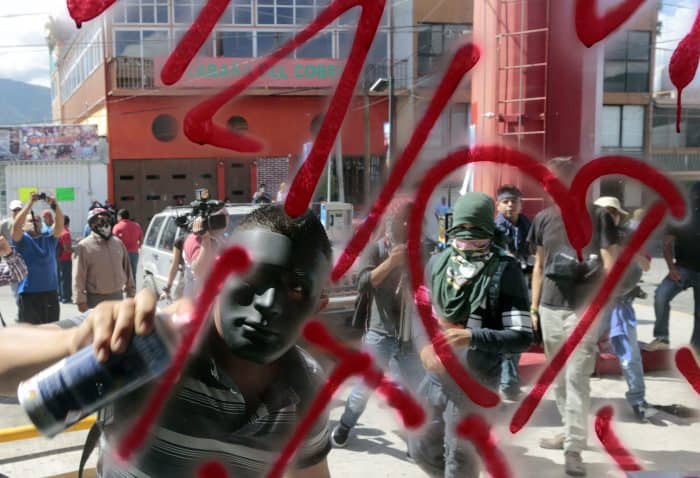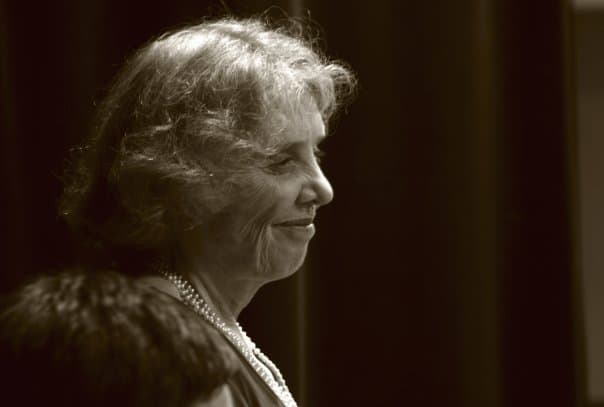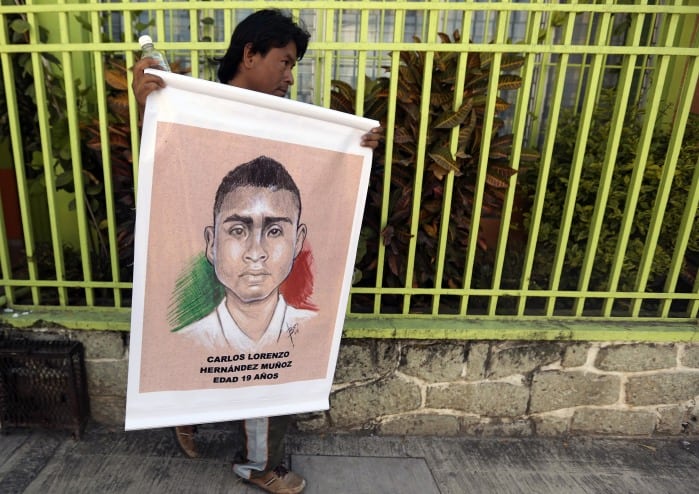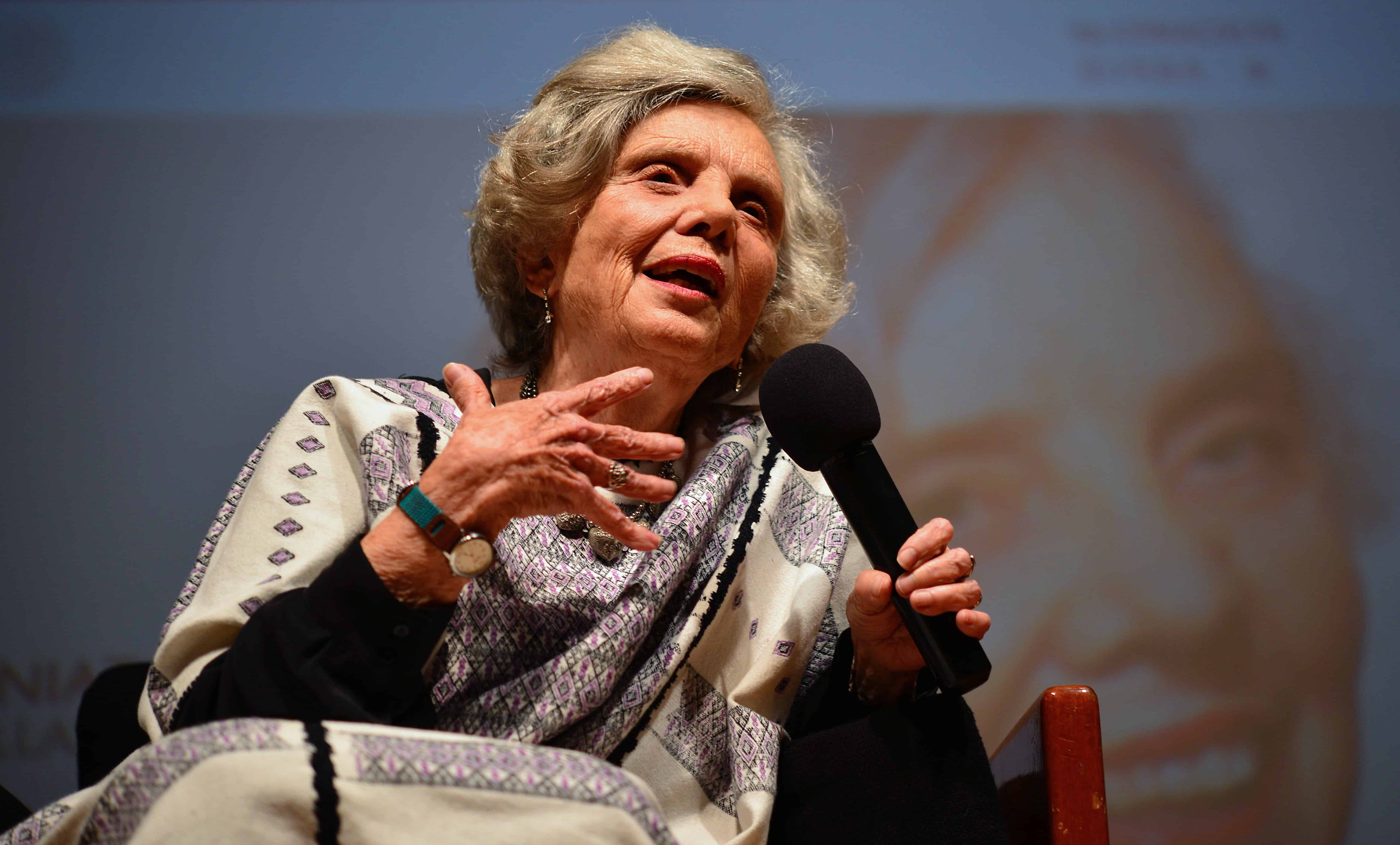MIAMI – The famous Mexican writer Elena Poniatowska, who visited Miami for a writers’ fair, on Sunday called the likely massacre of 43 students a “great shame” for Mexico, and compared it to her memories of the horrors of German concentration camps.
“Having 43 young people assassinated in this way – not just assassinated, but burned like garbage, as if they were shit – is a great shame, not just for me personally, but for the whole country,” she said at a meeting with journalists during which she became overwhelmed with emotion over this “terrible” issue.
“How will the country face the world after this, because it reminds us of the concentration camps, the Second World War, the annihilation of human beings,” said the 82-year-old writer and journalist who last Sunday inaugurated the Miami Book Fair, considered the most important literary event in the U.S.
Mexico has been overwhelmed with emotion ever since the disappearance of 43 students in Iguala, Guerrero, at the end of September. It is feared they were assassinated and incinerated, which has led to violent protests and the worst crisis the administration of President Enrique Peña Nieto has faced since taking office at the end of 2012.
Recommended: Amid routine ‘disappearances,’ Mexico reels over 43 missing students

A horrible step backwards
“What has happened in my country, in addition to being a tragedy, is a horrible step backwards,” said Poniatowska, the leftist activist who was awarded the prestigious Cervantes prize in 2013, considered the Nobel Prize of Spanish-language literature.
Poniatowska, who first came to fame with her book “La noche de Tlatelolco” (“The night of Tlatelolco”), about the massacre of at least 44 students by the Mexican military in 1968, said she never thought that it could ever happen again.
“I was convinced there would never be another massacre. Of course, the fact is that this is a country where this kind of thing can happen, because death always lingers close when there are a lot of guns,” she said, while citing the “high” level of governmental corruption and the “abysmal” differences between rich and poor as other factors impeding progress in Mexico.
She went on to say that “as a mother, a human being, and a woman” she is against vandalism during the protests, but admits to seeing some justification because “there comes a time when the people’s desperation is enormous and rage is understandable.”
One day she would like to write about what’s happening, despite the fact that in Mexico she is often considered “the widow of all disgraceful disasters,” said the writer, for whom her “country’s reality is like Shakespeare,” and tragedy is the daily name of the game.
See also: Mexico horrified by suspected massacre, incineration of 43 students

Memories and anecdotes
Poniatowska, a descendent of the last Polish king and born in Paris in 1932, said that ever since her arrival in Mexico at the age of 10 she became interested in the downtrodden, which figure prominently in her work, because they had much more interesting things to say than those of her own social class.
“What impressed me the most [upon arriving in Mexico] was seeing barefoot people in the street. They walked that way so as not to be seen, to not be a bother. They felt that they were nothing, nobody, and that really caught my attention, and I suppose it must have hurt me,” said the writer, who won the Rόmulo Gallegos prize in 2007 for “El tren pasa primero” (“The train passes first”) and the Alfaguara Novel award in 2001 for “La piel del cielo” (“The skin of the sky”).
In sharing her thoughtful and entertaining words, which she used to invoke anecdotes and memories of her long, full life, she didn’t shy away from praising better-known writers, many of whom she came to know personally, such as Nobel Prize winners Octavio Paz, of Mexico, José Saramago, of Portugal, and Gabriel Garcia Márquez, of Colombia.
She considered Márquez, who died last April, a “simple” and “friendly” person, whom she never had reason to believe was presumptuous.
Poniatowska is the guest of honor of the Latin American program of the Miami Book Fair. The week-long fair offers a varied and rich cultural agenda that includes almost 500 authors – both Latin and otherwise, and expects to attract hundreds of thousands of visitors as it always has.

See all of our coverage of the Mexico student massacre here
Also recommended: Remembering the Jesuits: Seeking justice in El Salvador after a quarter-century






